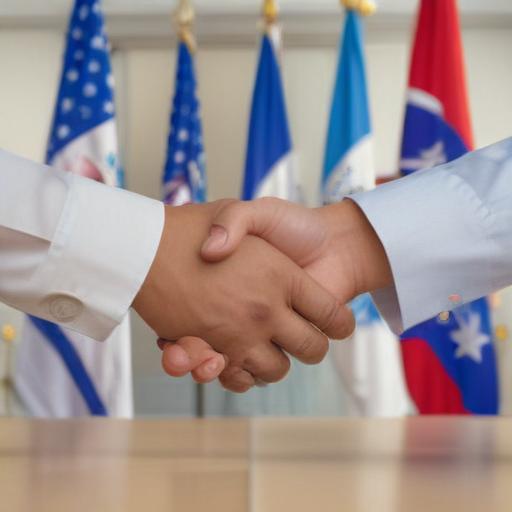Honduras President Xiomara Castro and U.S. Homeland Security Secretary Kristi Noem held their inaugural meeting in Tegucigalpa on Wednesday, focusing on immigration and border security issues. This marks Noem’s first visit to Honduras as a member of the Trump Cabinet.
While the meeting concluded without comments to the press, Honduras’ Foreign Affairs Minister, Javier Bú Soto, announced that both nations signed a letter of intent to share biometric data regarding individuals transiting through Honduras with the U.S. This type of agreement has previously been established with other countries in the region. Additionally, the two governments entered into an accord related to migrants seeking protection in Honduras, though the details were not disclosed.
Bú Soto noted the ongoing commitment to collaborate on migration security, border security, and the fight against drug trafficking. Noem is scheduled to continue her trip to Guatemala to meet with President Bernardo Arévalo.
Prior to this meeting, relations between the U.S. and the Castro administration had been strained, particularly after Castro canceled a longstanding extradition treaty last year. This treaty had allowed for the extradition of former President Juan Orlando Hernández to the U.S. to face drug trafficking charges. Castro’s earlier decision to potentially cease cooperation with the U.S. military over Trump’s proposed mass deportations also contributed to the friction.
Despite the tensions, Castro reversed her stance on the extradition treaty earlier this year after negotiations with the Trump administration. However, doubts linger about the genuineness of the current cordial relations. Honduran analyst Graco Pérez expressed skepticism, noting that for three and a half years, the administration had been in confrontation with the U.S., and the sudden change in tone may not reflect true unity or cooperation.
Previously, Noem met with Costa Rican President Rodrigo Chaves, where they signed an agreement emphasizing U.S. support for Costa Rica’s inclusion in the Global Entry program and aid in enhancing security measures for screening individuals and goods entering Costa Rica.
As the U.S. continues to forge agreements with Central American nations to enhance security and data-sharing, these developments may pave the way for improved regional cooperation on immigration and related challenges. Through these partnerships, there lies the potential for more structured and humane approaches to migration, addressing the needs of migrants while also reinforcing border security efforts.
